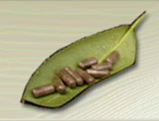 Loading... Please wait...
Loading... Please wait...Blog - depression
An Ayurvedic View on the Balanced Mind
Posted on 26th Jul 2012
Bipolar disorder, also known as manic-depression is a Western psychological diagnosis, characterized by mood swings between elation (or mania) and depression. There are an extensive amount of symptoms and manifestations relating to these diagnoses that can vary greatly, depending on the environment and varied imbalances of the individual. Symptoms of bipolar disorder are different from the normal ups and downs that everyone goes through from time to time in modern life. It can cause unusual shifts in mood, energy, activity levels, and the ability to carry out day-to-day tasks.
Depression also affects one’s mood and ability to cope by causing a sense of hopelessness, despondency, cheerlessness, worry, anxiety and sorrow. In susceptible individuals, bipolar disorder and depression are primarily amplified by low ojas (vigor, immunity, strength, contentment, essentially the fluid of life) and high vata (biological principle of movement and dryness) in the mind and nervous system. As we shall discover, Ayurveda offers a multitude of holistic tools and ways of approaching this disease that can restore health so one does not have to rely as heavily on conventional western treatments and medications that can carry with them so many negative side effects.
Traditional Ayurveda has no specific equivalent description for the diagnosis of bipolar disorder written in the classical Ayurvedic texts. One of the main ancient treatises on Ayurveda is the Charaka Samhita, describe such mental disorders as “wandering about of mind, intellect, consciousness, knowledge, memory, inclination, manners, activities and conduct.” Some of the descriptions and symptoms written in these texts are similar to western diagnostics, and some parallels can be drawn. One who is familiar with the practice of Ayurvedic medicine will look at the underlying causes of the symptoms in the individual. Brain, or mood disorders manifest due to imbalances in the three fundamental biological qualities, or doshas that govern the body and mind; vata, pitta and kapha; and the mental principles of sattva, rajas and tamas, which, to simplify, are the “qualities of consciousness.”
The stresses of today’s modern lifestyles can cause many doshic imbalances, which in turn can cause mood disorders. As mentioned earlier, western medical doctors are eager to prescribe any number of anti-depressant drugs on the market, without looking at the underlying root causes of these conditions. The main tools used in Ayurveda for managing the mind are “diet and herbs on a physical level, prana and the senses working at a more subtle level, and mantra and meditation working more at the level of the mind itself.”
Keeping regular daily routines, eating a healthy diet, getting appropriate exercise, and using some quality herbal supplements, such as Bacopa, Ashwagandha, Gotu Kola and Jatamansi can make a big difference in managing one’s mental state, and in helping to improve the lives of individuals suffering from these conditions. Triphala is a useful combination of three fruits that help reduce vata in the intestines, and also helps with the absorption of the other herbs and foods that are being taken and will exponentially multiply their effects.
Since Ayurveda is not a quick process, and the science relies on the development of healthy routines and habits over a lifetime, it is important for a patient to practice and have patience with the process.















